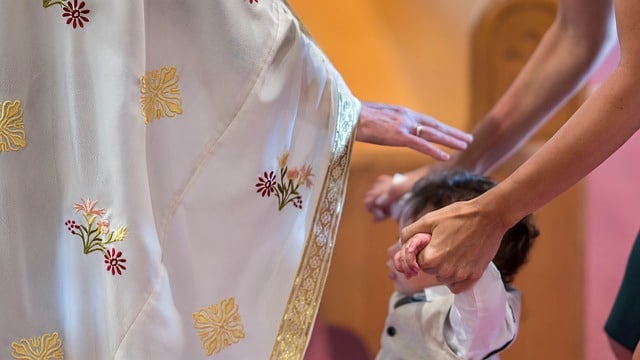
A blessing can invoke divine intervention.
The term blessing comes from a Latin word that refers to the action and effect of blessing . This verb, for its part, is a way of naming the action of praising, extolling or magnifying , of consecrating something to divine worship or of invoking divine blessing in favor of something or someone .
The blessing, therefore, is the expression of a benign wish that is directed at one person, several people or an object and that, through its own expression, becomes concrete. This means that, at the same time that the blessing is pronounced, the action of blessing materializes.
Examples of blessing
Some examples where the concept appears are: “I am going to ask Father Miguel for his blessing on the new house,” “Daughter, you have my blessing to marry Darío,” “The bishop was in charge of giving the blessing to the plane that will leave with help. ” humanitarian heading to Africa.”
A blessing can be expressed in multiple ways, without there being an explicit mention of the act of blessing. The phrase “May God keep you” is also a blessing.

Priests usually give blessings to the faithful.
Other uses of the concept
It is also said that a blessing is what is believed to be obtained through divine intermediation (when a priest invokes God to bless) or by the will of a person. In this last sense, expressions such as “Farewell” or “Strength to overcome this” can be understood as blessings.
The approval or agreement that one person grants to another can also be considered a blessing: “The boss gave me his blessing to move forward with the project,” “With the blessing of his family, little Timmy decided to go after his dreams.” and he embarked towards distant lands.”
Prayers to ask for blessing in the Mapuche people
In the Mapuche culture there are a series of prayers that are performed to ask for the blessing of nature towards the people. These prayers are called rogatives and are believed to be extremely effective. Every time the people gather for prayer days to ask for rain for their crops, the weather changes and things seem to get back on track .
In the prayers, the people accept their mistakes and ask nature for forgiveness; and then asks for mercy, so that balance can reign again.
How prayers develop
The entire town participates in these celebrations, guided by the loncos (the elders, chiefs and teachers). A small hole is made in a specific place and they dance to the rhythm of the cultrún (a leather drum that has the insignia of the town) and the pifilka (a small one-note flute). In addition, a little of the cultivated yerba mate and Muday (a drink made from fermented wheat) are offered to the earth (the benefactress ) as an offering for her blessings.
The people stand facing the east while the loncos kneel and extend their hands towards the sun and pray in their language, Mapudungun . It is worth mentioning that the text used for these sentences is not pre-established; the lonco who directs it expresses what he feels he should say and how he should do it; thus establishing a dialogue with nature. But most of the prayers revolve around the request for blessing through rain and the well-being of all people and animals. At the end the offering is made. Each person who has previously received a handful of yerba mate must place it in the small hole, while the loncos continue performing the prayer .
The land blesses the Mapuche people with rain and good harvests and thus establishes a balanced and irrevocable bond .
